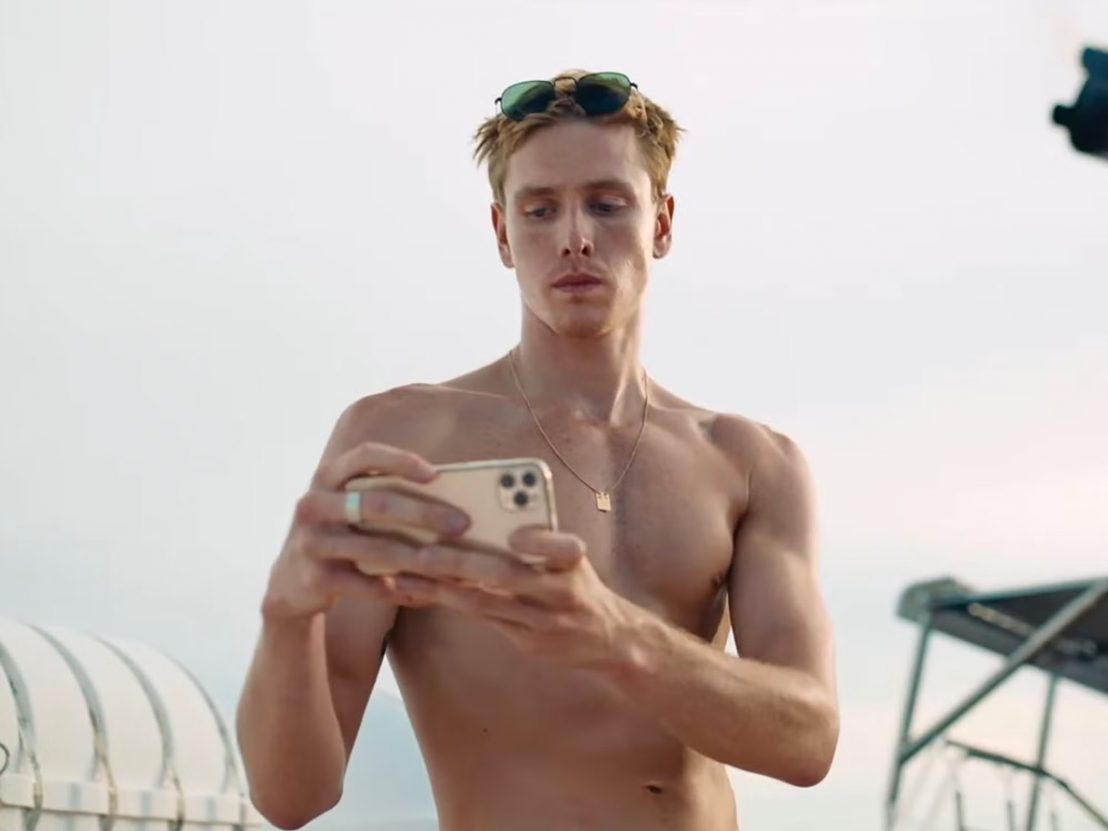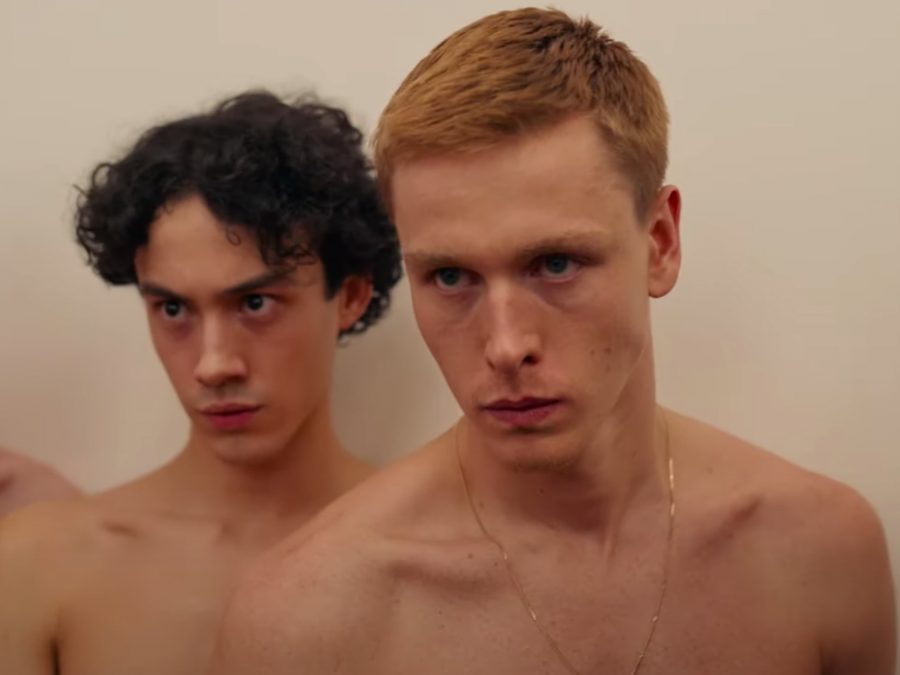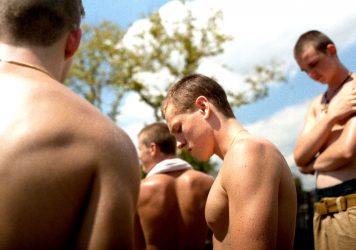
In a new series, we’re celebrating the films we loved that aren’t likely to dominate the awards race. Over the new few weeks, our writers make passionate arguments for the performances and craft that stood out to them, from blockbusters to arthouse and everything in between.
So this is awkward: stumping for a literal Best Picture nominee in the midst of an alternative Oscars feature feels a bit of a copout, a narc move, like bringing a Tory MP to a political protest. In my defense, back when LWLies approached me to suggest a lovable awards-season underdog, Ruben Östlund’s raucous One Percent satire Triangle of Sadness didn’t exactly seem a slam-dunk for Oscar recognition. The Academy can be sniffy about comedy at the best of times, and the precedent for Euro-art films with extensive vomiting orgies landing in Hollywood’s most prestigious derby is approximately nil. Yet here it is, with three major Oscar nominations including Best Picture and Best Director, and here I am telling you it was under-rewarded.
But here’s the thing: it was. Gratifying as it is to see Östlund invited to the party, the expert actors who carry the film’s blend of balls-out comedy and more anguished social commentary should be there with him. At least Dolly de Leon, the hitherto little-known Filipino theatre actress who wickedly emerges in the film’s second half as its commanding captain, got Golden Globe and BAFTA nods and a smattering of critics’ awards, even if she couldn’t crack the Academy’s final five for Best Supporting Actress. But where was the love anywhere for her unlikely onscreen bitch, our own Harris Dickinson? He should be up for Best Actor: indulge me as I explain why.
Carl, the infuriatingly perfect-looking himbo that Dickinson plays in Triangle of Sadness, is not most people’s idea of a great lead character. A catwalk model whose career is apparently on the slide — for the gatekeepers of fashion see blemishes on his 25-year-old visage that mere mortals like us cannot — he’s a vain, selfish, chronically insecure little man in the gilded body of an Adonis. He conjures conflict from thin air, whether turning a minor restaurant-bill dispute with his equally vapid model girlfriend Yaya (the late, and wonderful, Charlbi Dean) into a full-blown couple’s fight, or getting a cruise employee fired for a passing smile at his woman. He’s both a Chad and a Karen, an alpha and a beta and a Z-lister: many actors might read the role on the page and wonder what on earth they stand to gain from playing such an inconsequential dick.

And yet, as played with surgical precision and deadpan wit by Dickinson, we kind of love him anyway: his Carl is pathetic in ways many men may all too reluctantly recognise, a very small, scared human beneath all the bronzer and blue-steel posing. In his very first scene, as he struts through an audition for modelling agents who regard him as if he were livestock at market, we somehow slowly his eyes dying even as his face maintains its rigid posture — scowling or rictus-smiling on cue — and the realisation that he’s being evaluated rather than admired sets in. From the jump, Dickinson carries himself like a man bluffing through the deep-down knowledge that his moment has passed.
Small wonder that he sticks so doggedly to his corner when arguing with Yaya, his voice tensing and tightening and going a notch higher from the strain. Carl makes a living not standing his ground: Dickinson brings an odd kind of integrity to the few, pettily motivated moments he chooses to assert himself and his principles. Even that defiance collapses, however, in the film’s table-flipping final act, as Carl’s beauty and sexual prowess are exploited by a very different mistress from the modelling world: de Leon’s calmly vengeful cabin cleaner Abigail. He’s meat once more, which Dickinson craftily plays as a kind of liberation from the relentless crafting and maintenance of image he’s had to do all along. He accepts his emasculation with a shrug; the sly glory of Dickinson’s work is that we suspect he might just like it.
All that and he’s repeatedly, honkingly funny, able to yield a belly laugh with one quizzical knit of his immaculately shaped eyebrows. It’s no fresh observation that comic performances get less than their due when awards season rolls around; when they do, as with Colin Farrell in The Banshees of Inisherin, it’s often because they locate a kind of gravitas in a punchline-prone character. Dickinson doesn’t dignify Carl too much: there’s never a suggestion that he’s a man of depth, just layer upon layer of superficialities.
In the six years since he wowed critics with his preternaturally assured, unflinching debut as a closeted teenage Brooklynite in Beach Rats, Dickinson has established himself as one of our most exciting young actors, acing such contrasting assignments as a darkly corruptive drug pusher in County Lines, a cocksure bro cameo in Xavier Dolan’s Matthias & Maxime and an absurdly cut-glass Richard Attenborough in the two farce See How the Run — he even survived last year’s Where the Crawdads Sing with his cool intact. But it’s Triangle of Sadness that most completely bridges his character-actor daring and humility with his glistening movie-star presence: Oscar recognition is coming his way eventually, I’m sure. But they already owe him.
Published 3 Mar 2023

Swedish provocateur Ruben Östlund takes us aboard the luxury cruise from hell in his latest over-the-top satire.

A Brooklyn teen struggles to find his own identity in Eliza Hittman’s stirring ballad of sexual awakening.

A recently bereaved 12-year-old girl is forced to reconnect with her absent father in Charlotte Regan's charming feature debut.